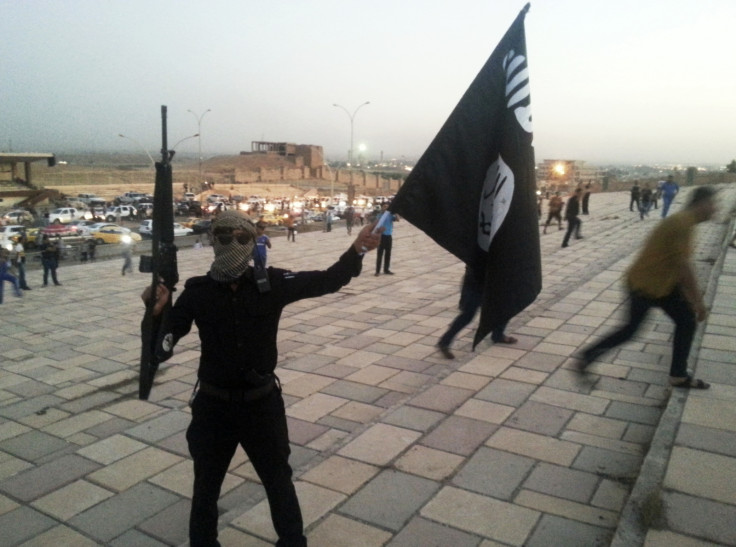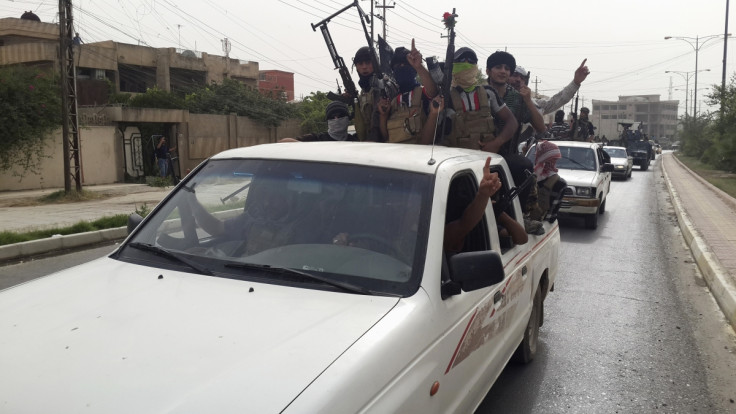Isis: Brain Drain and Social Media Backfire Will Cause Islamic State Downfall

The self-styled caliphate established by the Islamic state (Isis) will likely follow the declining pattern of the last years of the Turkish Ottoman caliphate and collapse on itself because it can no longer maintain its infrastructure, following a backfire of its propaganda machine on social media.
A report by Richard Barrett, former British diplomat who headed the UN monitoring team on al-Qaida and the Taliban, found out that while the Islamic State is still attractive for young would-be jihadists around the world, it is facing an increased backlash in the greater Muslim world and will find it difficult to control dissent within its borders.
"The thirst for change that Islamic State has managed to exploit will not be slaked by its totalitarian approach towards its subjects. In today's world, no state, however remote, can hope to control its population by limiting its access to information or suppressing its ability to think," reads the report.
Social media backfire
In the past months, IS has issued a successful social media campaign that managed to promote and spread their brand, propaganda and news across social media such as Twitter, Ask.fm, Kik, Quitter and Diaspora. The latter is a privacy-focused platform, which has been used to issue Isis statements, pics and updates.
The group's supporters have circulated information on Twitter, proving that any attempt to close IS official accounts is not very effective. Diaspora works as a decentralised social network operating through a series of interconnected sites.
Isis also used the Arabic-language Twitter app called "The Dawn of Glad Tidings". The Dawn app allows IS to send tweets through the personal accounts of their users, allowing them to reach hundreds of thousands more accounts and giving the perception that their content is bigger and more popular that it might actually be.
But the social media platforms may prove to be a "snake with two tails" according to ZeroFOX Chief Strategy Officer Shane Shook.
"They used social media to their benefits, but any sort of fascist totalitarian regime is subject to its own device," he told IBTimes UK. "It's more difficult to control communications, particularly with the reach they saw on the Western community. That may serve and already has served to undermine its activities."

'Brain drain' of the best and the brightest
Robert McFadden, contributor for the report for security analysts the Soufan Group, agrees that the tactics of propagating execution videos of American and British journalist may work to recruit "people attracted to serial killer behaviour" but it causes a "tidal wave against this kind of activities by the greater Muslim world".
Isis authoritarian regime means that they are "intolerant of any opposition or divergence from its worldview, and has set up networks of informers and a heavy security apparatus, managed from the centre, to ensure that no challenge to its authority can grow".
The authoritarian control over the population has caused a massive "brain drain" of members of the professional classes, leaving hospitals without staff or medicines and school without teachers. McFadden believes that this will be one of the factors of Isis downfall.
"In terms of attracting and keeping the best and brightest that shows how poorly Isis is able to govern the territory," McFadden told IBTimes UK. "In Isis-controlled territory the most capable are the first to leave. Doctors. technocrats, the educated."
Shook agrees: "Any time you attempt to replace experienced, qualified, educated people with radical, rhetorical ideologists you necessarily are going to destroy effectiveness."
"History does not treat kindly those who drive away their talents and it usually doesn't end well that kind of tyranny going on," he continued.
A new Sunni awakening?

According to the report, Isis can no longer run the electrical infrastructure, basic communication and basic services in the so-called caliphate and it is difficult to conceive how there will be an effective functioning under those kind of circumstances. Those who see Isis as a "new form of oppression" are also the same who will soon start to organise themselves to fight back, the exception being Mosul, the largest city under Isis control.
History does not treat kindly those who drive away their best and brightest
The conditions there have reportedly deteriorated, making it easily for a "dictatorship" to govern in absence of alternatives. Nonetheless, signs of an uprising against the Islamic State can already be seen, according to reports.
The Obama administration and Iraq have already teamed up with some Sunni tribesmen to fightback in the hope of rekindling the same "Sunni awakening" that shattered an al-Qaida-linked group at the height of Iraq's sectarian civil strife between 2005 and 2007.
At the time, the US military recruited and paid Sunni tribes to lead the struggle against the jihadists. But the Shi'ite-dominated government of former Prime Minister Nouri al-Maliki fuelled sectarianism and disenfranchised the Sunni community from power, driving them to support IS in the first instance.
The downfall of a caliphate
Despite these circumstances, McFadden thinks that a new Sunni revolt will soon take place. "When those groups like Isis place an extreme form of Islam on the local population, there's a fightback that develops quite naturally. But these things take time. And unfortunately the trend that continues is that Isis with iron and blood and blast hand crushes any Sunni attempt to revolt."
Isis is really restoring the last, declining years of the Turkish Ottoman caliphate
The reference is to the slaughter of 322 members of an Iraqi tribe in western Anbar province, once the heartland of the first Sunni awakening.
"That will make it difficult for any organisation to plan a backlash in those areas," he said.
However, the report adds that Isis will encounter further problems if they can no longer maintain the general infrastructure in the winter months.
The fragility of a caliphate that pledged to last "a thousand years" in a grotesque re-enactment of history is demonstrated by the difficulties of the administration in crushing dissent and keeping its structure.
"It's ironic that they're seeking to restore the Turkish Ottoman caliphate, but what they're really doing is restoring the last, declining years of it," Shook said.
© Copyright IBTimes 2024. All rights reserved.







